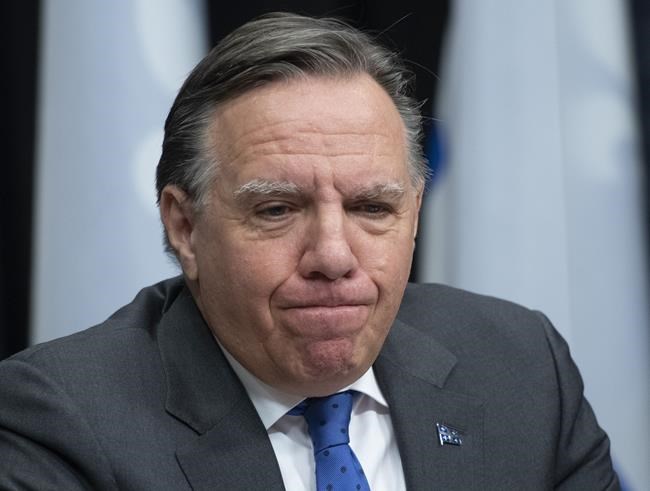MONTREAL — Fear that Quebecers will catch a new variant of COVID-19 on vacation is what's driving demands by the Quebec premier for Ottawa to ban non-essential flights to the country.
Premier Francois Legault repeated once again this week that his government believes it was vacationing Quebecers during spring break in 2020 who brought the virus home, allowing it to spread earlier and more widely in the province than elsewhere in Canada.
Legal experts say a ban on non-essential travel would violate the mobility rights guaranteed in the Charter of Rights and Freedoms, which states, "Every citizen of Canada has the right to enter, remain in and leave Canada." The question, experts say, is whether a ban can be justified.
"The Constitution is very clear that Canadians have the right to enter and leave Canada," Johanne Poirier, a McGill University law professor who specializes in Canadian federalism, said in a recent interview. But like other rights, she said, it can be limited — if the limitation is justified, reasonable and proportionate.
And given the worldwide pandemic, the courts might offer the government more flexibility, she said.
"These would not be cases where the courts would be extremely taxing or demanding on the government," she said. "But the government would still have to justify it, because there's no doubt that there's a violation of rights."
Prime Minister Justin Trudeau said Friday his government is considering new measures that would "significantly impede" Canadians' ability to return to the country. Forcing returning travellers to quarantine in a hotel — at their expense and under police surveillance — is also on the table, he said.
Trudeau said earlier in the week he wouldn't close the border to Canadians because the Constitution protects their right to enter the country. The prime minister, however, has restricted access to the country to foreigners since the start of the pandemic.
Michael Bryant, head of the Canadian Civil Liberties Association, said forcing people to quarantine at a government-supervised location would be justified if the state has data showing current health orders around travel aren't working. But Bryant said in a recent interview he hasn't seen evidence the rules are failing. "I don't think that they have that data."
Canadians who return from abroad are required to isolate at home for two weeks and violators risk heavy fines and jail time.
A September ruling in Newfoundland and Labrador offers an idea of how the courts would interpret the legality of travel bans, Poirier said. A judge in that province affirmed the government's ban on interprovincial travel to limit the spread of COVID-19, despite arguments the order violated charter rights.
"I think the courts would be very reluctant in the short term to stand in the way of a government that wanted to ban travel," she said.
As of Thursday, there were five cases in Quebec of the new COVID-19 variant that was first detected in the U.K. Four of those cases — detected in December — were related to travel to that country. Officials have said the source of the fifth case remains unknown.
Bryant said he doesn't believe fears of new COVID-19 variants justify added restrictions on mobility rights, especially if more proportionate responses — such as increased testing of people arriving in the country — are available.
Meanwhile, data from the federal government indicates travellers are being exposed to COVID-19 as they fly back to the country. Since Jan. 6, passengers on 164 international flights arriving in Canada have been exposed COVID-19 while flying, according to the Public Health Agency of Canada. Thirty-two of those flights have been to Montreal and one to Quebec City.
But Montreal-based airline Air Transat said travel has been associated with relatively few cases of COVID-19.
"And yet, even with travel accounting for only one per cent of COVID-19 cases, there has been an enormous amount of attention dedicated to it over the last few weeks," Air Transat spokeswoman Debbie Cabana wrote in an email.
"Perhaps part of that attention should be redirected to the factors that contribute to 99 per cent of COVID-19 infections."
If the government wants to ban travel, Cabana said, it should ban it — and give airlines financial support. "You cannot ask a company fighting for survival to continue to operate while taking away its customers."
This report by The Canadian Press was first published Jan. 23, 2021.
———
This story was produced with the financial assistance of the Facebook and Canadian Press News Fellowship.
Jacob Serebrin, The Canadian Press



